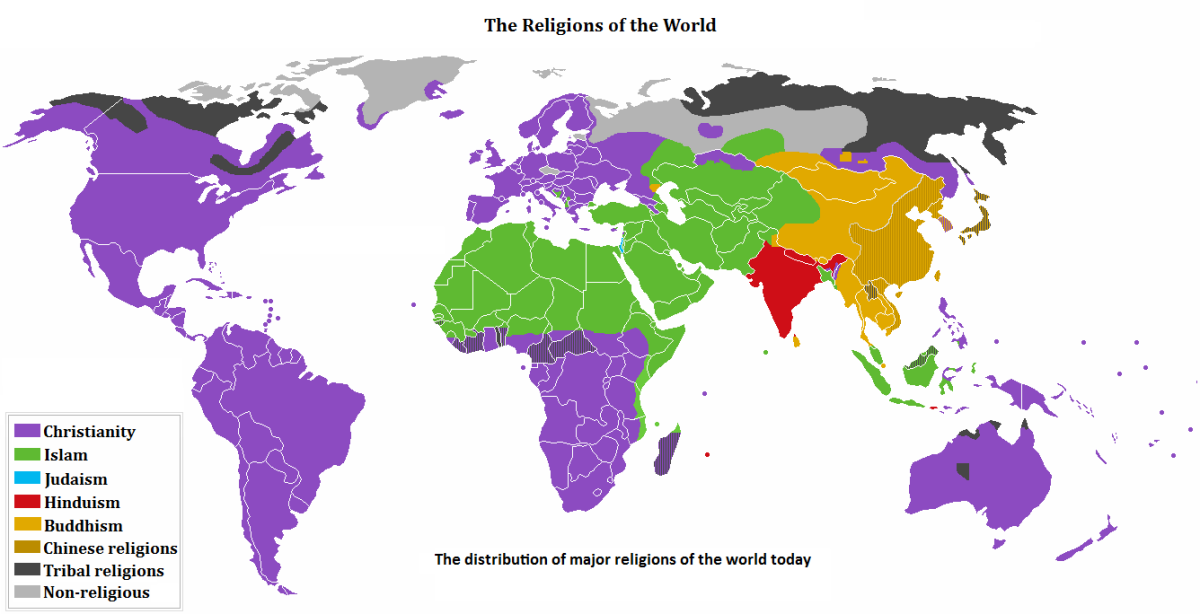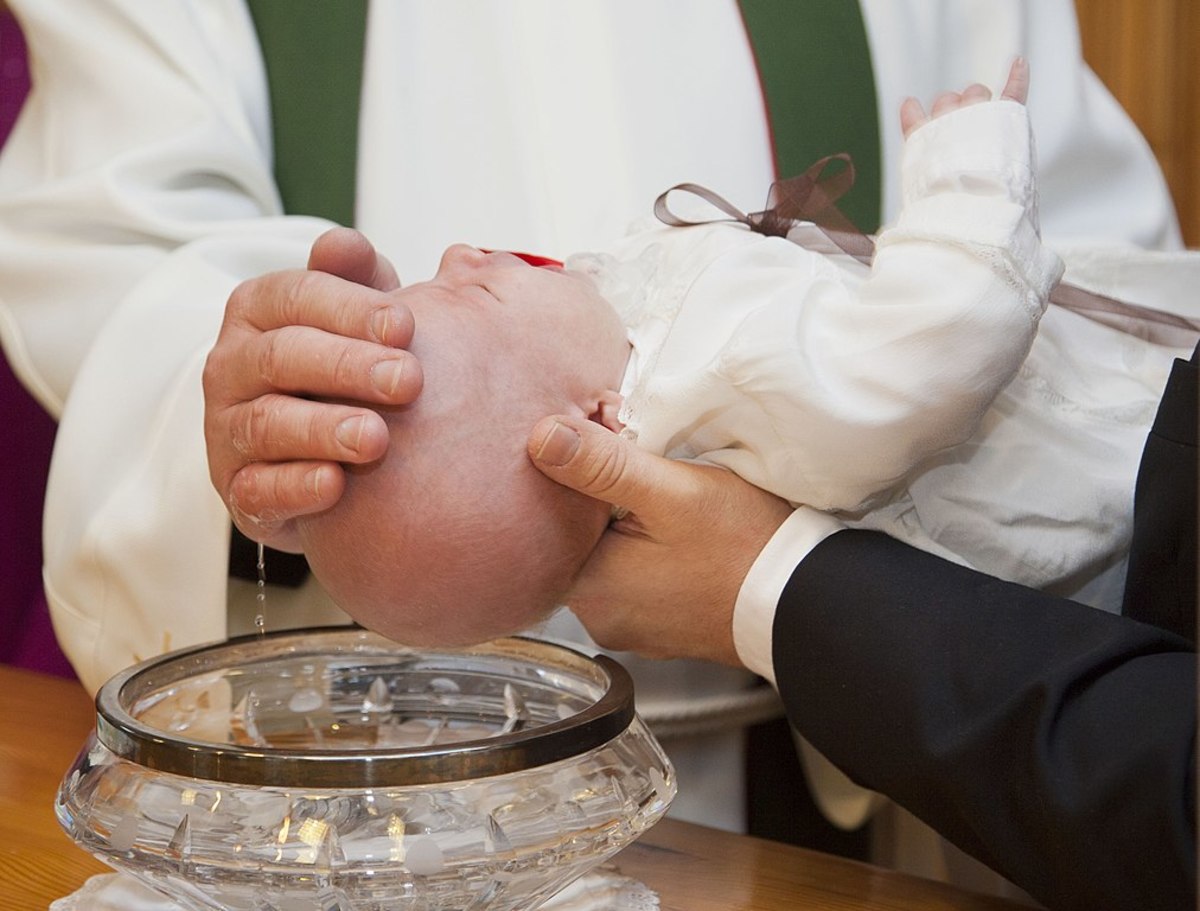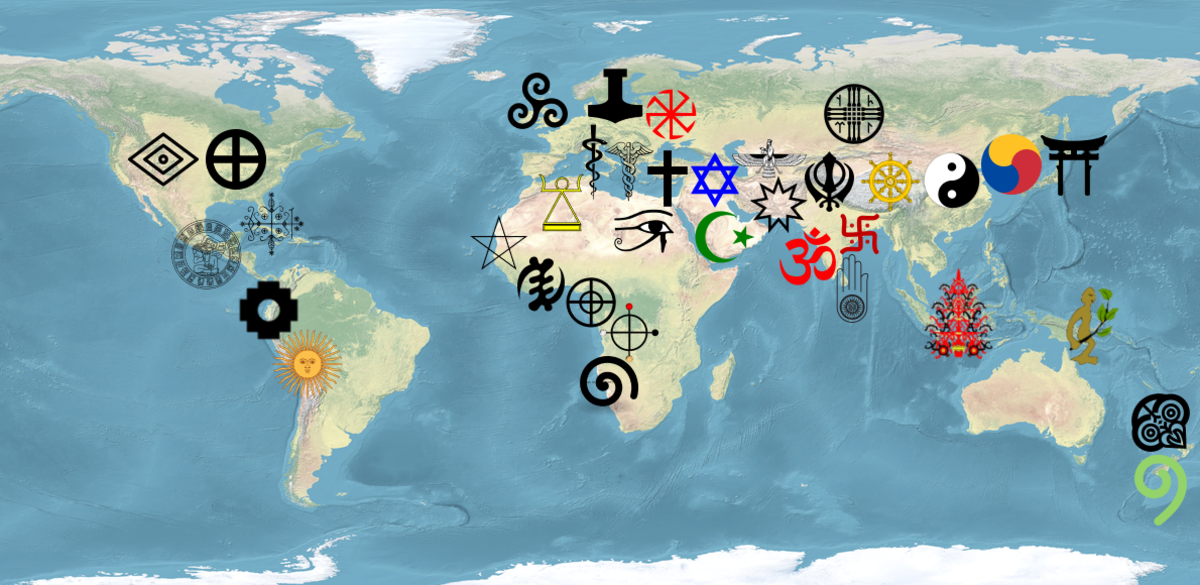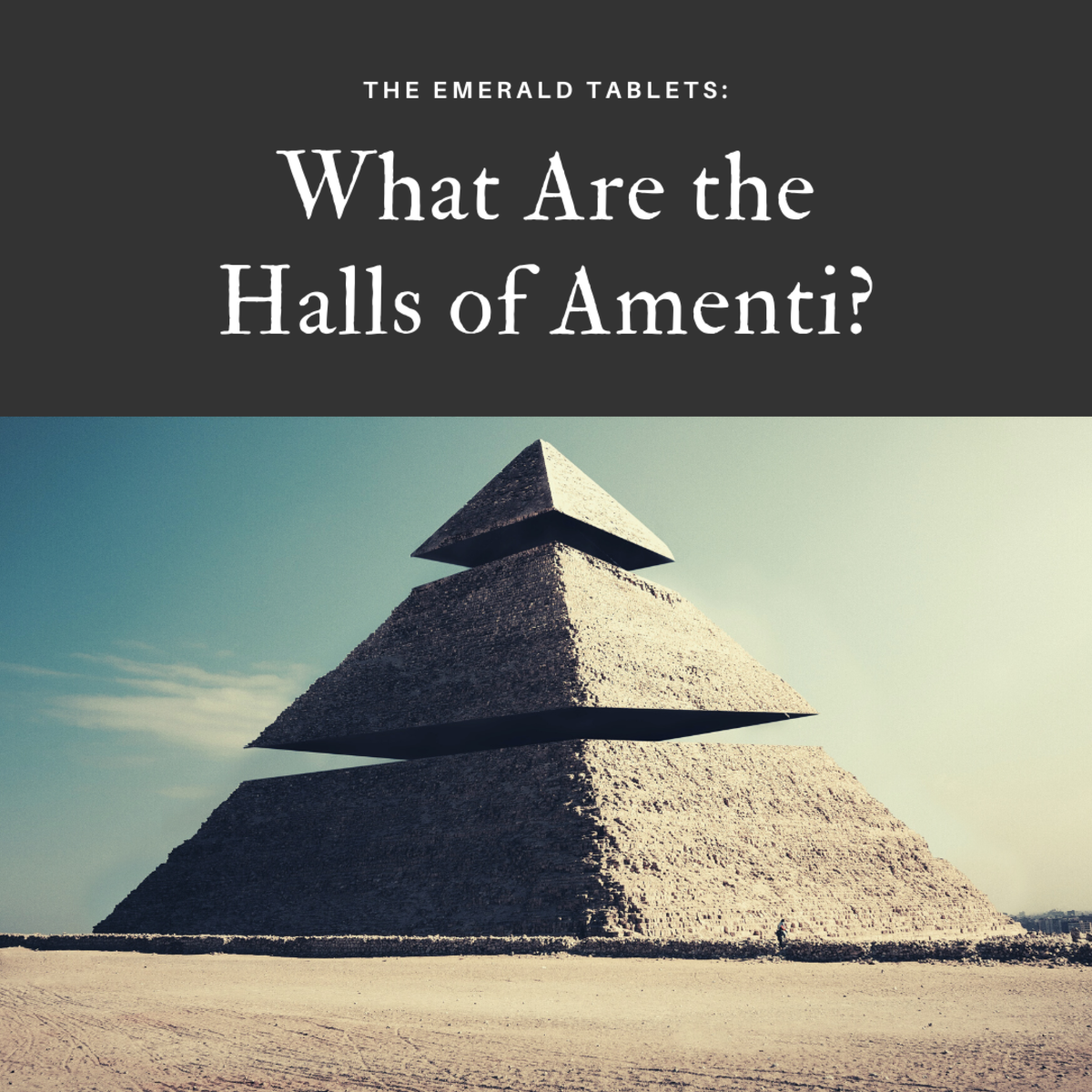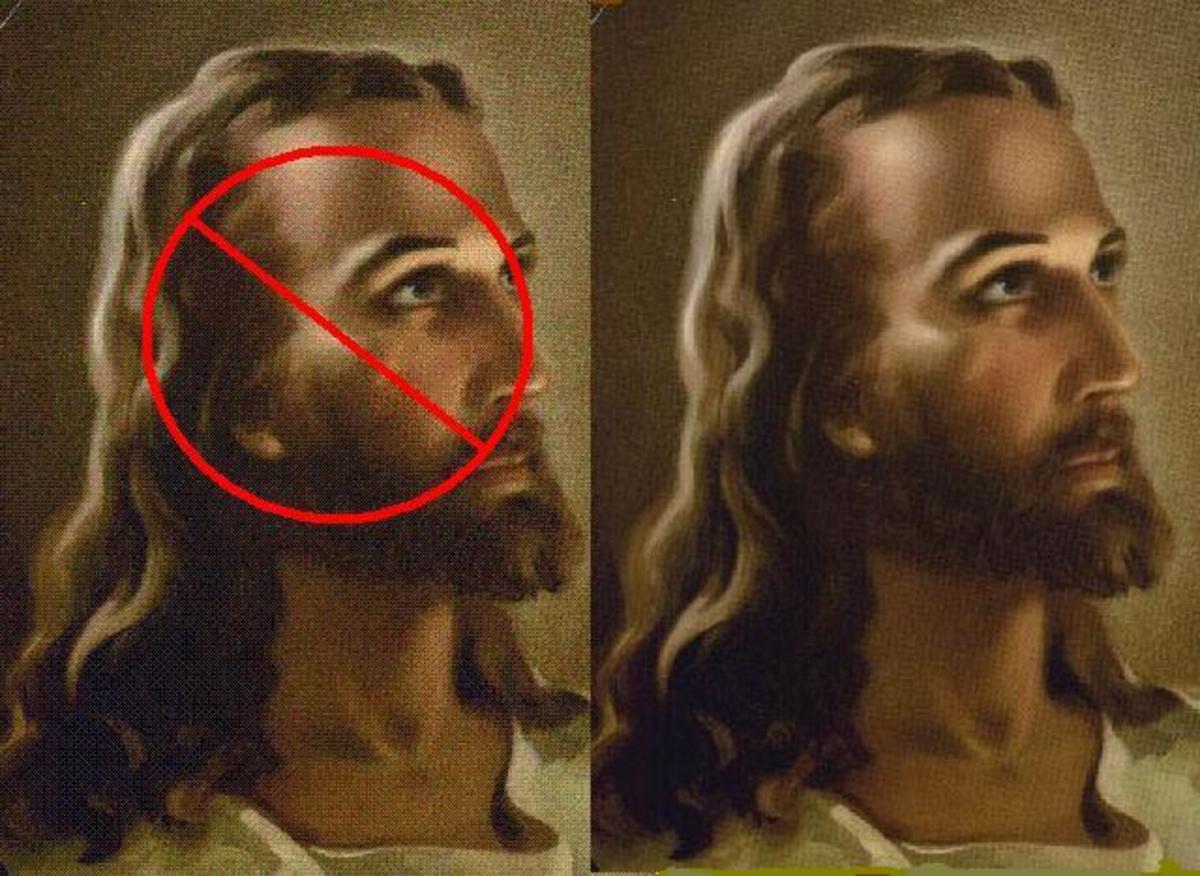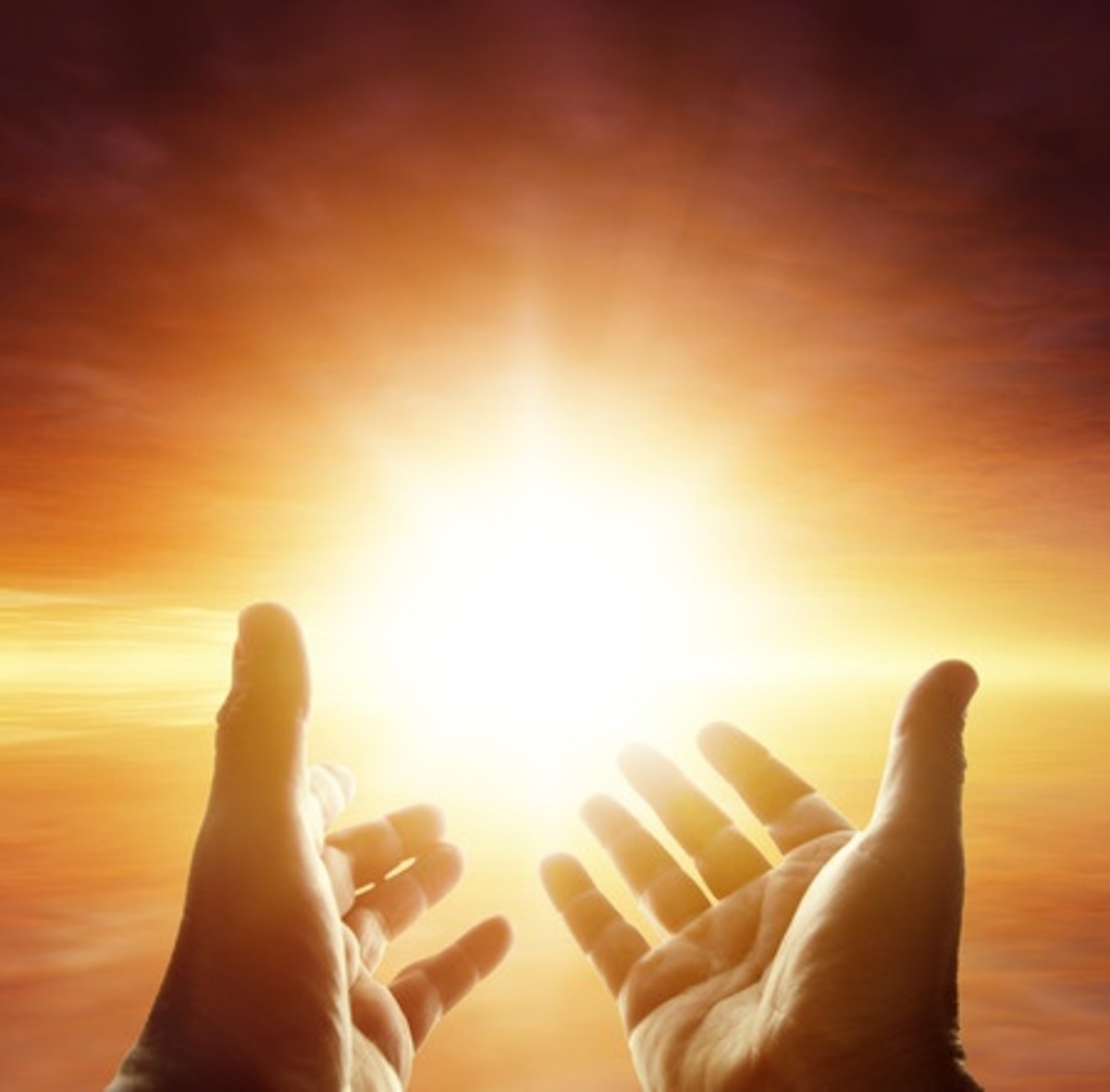What Takes More Courage Than Rebellion? Considering Another Point of View. Part I: Abrahamic Religions

What if I had ten children, and:
Five were forced to live on less than $2 USD a day;
Only two of them owned or shared a computer, and only three had any sort of access to the internet;
Not that this mattered for the two who were illiterate, with no access to adequate food, water, electricity and improved toilets;
Three of them were constantly beating each other up, mainly about what rights they have to my name and assets.
Most significant of all:
Four of them didn’t even know I was their parent. Three of them, convinced they are my “pet children”, bully the others into accepting their beliefs about me, taking advantage of what assets they have in the process. These three “pet children” are constantly arguing amongst themselves that their point of view about me is the true one.
In the midst of all this mayhem, I remain silent. What would that say about me?
At least half of people reading this may have guessed I’m referring to the Abrahamic view of God as the Ruler of the world. I’ve noticed a lot of discussions on the late great Bubblews and HubPages about God and Atheism. I’ve pretty much run the gamut of the scene; as a child, I was a devout conservative Christian, then I rebelled against the church in my late teens. Blaming this apostasy on my poor start in adulthood, I returned to the church, but that did not alleviate my struggles; then I inadvertently joined a cult, putting my life in danger in the process. People do not deliberately choose to join cults; they do so because a particular false doctrine appeals to the way they were raised. I didn’t even realize what I had done until I was forced to sit helpless while my niece did the same thing, dropping out of high school to do so.
I am writing these articles to deal with my own issues, as well as other people challenging belief in God. I won’t pretend I have any answers; I’m just considering other points of view. Two things I learned from being in the cult are; 1) there is no cosmic Santa Claus, and 2) there is more than one way to think. (To people who fear hell if they don’t follow a rigid formula; if there’s no cosmic Santa Claus, it’s highly unlikely there’s a cosmic Hitler either.)
Back in the days of antiquity, when humans were learning about how the world works, religions were established to explain the unexplainable. Ingesting and doing certain things led to illness, while other behaviors led to cures; since they could not understand why, this was called magic. Myths explained where the sun went every night, and the change of the seasons. Religions were shaped by this. They were also shaped by the landscape, climate, and culture of the regions where they were practiced.
The Technological Revolution over the past 2 centuries has changed the world far more than all the discoveries of the preceding 6000 years. This makes many religions seem outdated. Atheism and agnosticism are the fastest growing “religious” groups, especially in the western world.
Is religion obsolete? Before deciding that, how about exploring the different types? Due to various differences in Earth regions, people have all sorts of points of view. There are thousands of religions being practiced all over the world; in this and the following three hubs, I will give a brief overview of the most prominent ten, in order of when they were formed.
First off, a brief humorous survey of the philosophies of some major religions:
Confucianism: Confucius say, "Shit happens."
Buddhism: If shit happens, it isn't really shit.
Hinduism: This shit has happened before.
Islam: If shit happens, it is the will of Allah.
Islam #2: If shit happens, kill the person responsible.
Islam #3: If shit happens, blame Israel.
Catholicism: If shit happens, you deserve it.
Protestantism: Let shit happen to someone else.
Judaism: Why does this shit always happen to us?
Rastafarianism: Let's smoke this shit!
Agnostic: Shit might have happened; then again, maybe not.
Agnostic #2: Did someone shit?
Agnostic #3: What is this shit?
Atheism: What shit?
Atheism #2: I can't believe this shit!
I have to add this – my background is Seventh Day Adventist:
Seventh Day Adventism: No shit shall happen on Saturday.
(Excerpted from: http://www.thejaywalker.com/pages/shit_happens.html )
LOL!
Now that we’ve lightened the mood, I will start off with what the majority of you are probably the most familiar with - the three Abrahamic religions.
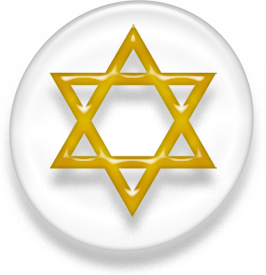
Judaism
Basic Philosophy: When Israel was delivered from slavery in Egypt, they were led by Yahweh into the wilderness to acquire their religion and code of ethics. Yahweh called Moses, their leader, to the summit of Mt. Sinai to receive the Ten Commandments. They are:
-
You shall have no other gods before Me.
-
You shall not make idols.
-
You shall not take the name of the LORD your God in vain.
-
Remember the Sabbath day, to keep it holy.
-
Honor your father and your mother.
-
You shall not murder.
-
You shall not commit adultery.
-
You shall not steal.
-
You shall not bear false witness against your neighbor.
-
You shall not covet.
(Copied from: http://lifehopeandtruth.com/bible/10-commandments/the-ten-commandments/10-commandments-list/)
This is the basis for Judaism, and its branch-off religions of Christianity and Islam.
In 12th century CE, Rabbi Maimonides assembled the 13 Articles of Faith, upon which all Jewish denominations agree.
Articles 1- 5 articulate truth about God, according to Jewish beliefs
1. God exists
2. God is one and unique
3. God is incorporeal
4. God is eternal
5. Prayer is to God only
Articles 6 and 7 concern prophets in Jewish history
6. The prophets spoke truth
7. Moses was the greatest of the prophets
Articles 8 and 9 refer to the sacred texts of Judaism
8. The Written and Oral Torah were given to Moses
9. There will be no other Torah
Articles 10 and 11 refer to humanity in Judaim
10. God knows the thoughts and deeds of men
11. God will reward the good and punish the wicked
Article 12 refer to the coming Anointed One of Israel
12. The Messiah will come
Article 13 refers to end times judgment
13. The dead will be resurrected
(List copied from http://www.jewfaq.org/beliefs.htm )
Jews, rather than supporting the doctrine of Original Sin, believe in free will. Human nature consists of two forces, yetzer tov, which is moral conscience, and yetzer ra, which is basic drive. Basic drive is not necessarily evil; it involves the desire to eat, drink, and procreate.
Jews are firm believers in living positive productive lives here on Earth, serving God as well as helping their fellow man. They believe that as descendants of Father Abraham, they were chosen by God to teach the world how to live the best moral life, and to serve as examples towards that end.
Jews have long looked forward to the coming of the Messiah, who will exalt them above all the nations of the Earth. This Messiah will also come at the end of the world, to exact justice, do away with disease and death, and create a new Heaven and Earth.
Type
| Monotheistic. God is referred to as Yahweh.
|
Holy Book(s)
| The Torah, which is the same as the Old Testament of the Christian Bible, and the Talmud, which is a commentary of the Torah. Originally, the Talmud was referred to as the Oral Torah; it was put in writing during the 2nd century CE
|
House of Worship, Day of Worship, Typical Worship Service / Rituals and Celebrations
| Their house of worship is called a Synagogue. Jews worship on Saturday, which they name Sabbath, or Shabbat. They observe it from sundown Friday to sundown Saturday, by ceasing work and avoiding secular matters, focusing on spiritual ones instead. A typical worship service involves prayers, singing, and listening to the reading of the Torah. Services are held Friday evening as well as on Saturday morning and afternoon. Jewish clergy are called rabbis.
|
Jews have many holidays throughout the year. The most important one is Rosh Hashanah, the Jewish New Year, which occurs in late September. During that time, Jews fast, review their lives over the past year, and repent of their sins. Other important ones are Hanukkah, which memorializes a miracle that occurred in 164 BCE; during a rededication of the Temple, a lamp with only a day’s worth of oil burned brightly for 8 days. It is celebrated in December. Passover honors the events surrounding the deliverance of Israel from slavery in Egypt; it is observed in the spring.
| |
Estimated Year Founded
| 2000 BCE, though its roots trace back to approximately 6000 BCE (the believed time of Creation). It is one of the oldest religions in the world.
|
Founder / Central Figure(s)
| Yahweh, their name for God.
|
Country of Origin
| Israel (formerly Canaan)
|
Countries Where Practiced
| Worldwide; primarily in the Middle East, North America, and Europe. Some large communities exist in Argentina and South Africa.
|
Percentage / Numbers of World Population Practicing It
| 14 million (0.22%). It is the 6th most practiced religion in the world.
|
Number of Denominations
| There are 5 major ones; Orthodox, Conservative, Reform, Hasidism, and Kabbalah. Several smaller sects arise from them.
|
Story
| God created 2 humans, Adam and Eve, in a perfect state. He placed them in the Garden of Eden, telling them they could eat of all the trees there except the Tree of Knowledge. Satan, a fallen archangel, lured them into eating from it; thus, sin entered the world. Over the next several centuries, things got so bad God sent the Great Flood to wipe out everyone except Noah, his wife, and their 3 sons and wives. They repopulated the Earth, but many tribes of people forgot about God, so around 2000 BCE, He chose a wealthy farmer named Abram and his wife Sarai to be forbearers of His Chosen People to teach the rest of world about Him and how to live. For this, they had to leave their hometown of Ur of the Chaldees behind and move to Canaan, where God promised their descendants eternal prosperity. They made the move, and God changed their names to Abraham and Sarah.
|
Since Sarah couldn’t bear children, Abraham fathered a son through her handmaiden and named him Ishmael (he would later become the forefather of the Nation of Islam). Fourteen years later, Sarah miraculously conceived and bore a son they named Isaac, who became the forefather of the Nation of Israel. Isaac had twin sons Esau and Jacob; the latter, whom God renamed Israel, became the forefather. Jacob had 12 sons, who would go on to become the ancestors of the 12 tribes of Israel. Jacob favored one son, Joseph, over all of them; out of jealously, the others sold him into slavery. Joseph was taken to Egypt, where after many years and numerous setbacks, he became a ruler. At his advice, Egypt stored their surplus crops in multiple storehouses; when a severe drought struck, people from all over came there to buy badly needed food. Among those were Joseph’s brothers. They stayed on in Egypt, having their families there. When Joseph died, the new ruler made their descendants into slaves. Several centuries later, Yahweh dramatically rescued them from slavery. Choosing Moses as their leader, Yahweh had them travel to the wilderness where they were taught their religion, which consisted of the Ten Commandments and the Mosaic Laws. After 40 years in the wilderness, Israel finally made its way back to Canaan, the Promised Land.
| |
Over the next several centuries, Israel was in and out of slavery, occupation, and war. Their Golden Age lasted only 80 years, during the reign of Kings David and Solomon. In 930 BCE, major disagreement with King Solomon’s son Jeroboam caused 10 of the tribes to break away, forming the North and South Kingdoms. None of the northern kings followed Yahweh's teachings, so 200 years later they were overrun by the Assyrians, becoming known as the 10 lost tribes of Israel.
| |
The remaining 2 tribes, Judah and Benjamin, continued to go through much turmoil, and in 79 CE, they lost their land to the Romans, scattering throughout Europe. In 1948, due to the Holocaust, the United Nations enacted laws allowing them to reclaim it (by then, it had become Palestine), but they continue to suffer through turmoil to this day. Jews are one of the most persecuted people on Earth.
| |
How the World Began
| God created the world from nothing in 6 days. On the 7th day He rested, honoring the Sabbath. Originally there were 2 humans; Adam and Eve. God warned them not to eat from the Tree of Knowledge, but Satan, a fallen archangel, lured them into doing it; thus, evil was brought into the world.
|
What Happens After We Die
| Jews say very little about what happens after death, beyond the fact that people will be resurrected someday. They prefer to focus on living a good life in the here-and-now. People are rewarded or punished according to their deeds, whether it happens in this life or the next.
|
How the World will End
| After the Messiah has come to restore Israel to its former glory (like in the days of King Solomon), the world will relapse into evil again, at which time the Messiah will come a second time. He will destroy the world and build a new one with no evil. The righteous dead will be resurrected and will live in this new world.
|
Positive Aspects
| Jews place tremendous value on acquiring knowledge. This explains why many of the world's most prominent people are Jews. Countries that value human rights base their laws on the Ten Commandments found in the second book of the Torah. The Mosaic Laws regarding kosher cooking and eating, and sanitation practices, predate scientific discoveries of their health benefits, and the concepts of honest and ethical business dealings are based on the Jewish belief system. Jews also have a tightknit network; everywhere they go, they can find a community that welcomes them and helps them out, like instant family. This has enabled them to survive countless attacks over the centuries.
|
Negative Aspects
| Some Jewish denominations tend to be extremely legalistic, rendering them unable to see things from other points of view. This attitude has led members to be banished for minor disagreements regarding tenets. There are even sectors that violently oppose the establishment of the Nation of Israel! Also, this legalism isolates them from societies where they live, which can provoke persecution from these societies.
|
Modern Day Issues
| Constant persecution has made it difficult to correlate historical fact with belief in Jews being God’s Chosen People. Especially since the Holocaust, many Jews are bitter against religion, with about half declaring themselves atheist or agnostic. It doesn’t help that much of that persecution has come from Christians and Muslims, religions that have sprung from Judaism. Yet, many Jews cling devoutly to their religion. Maintaining the nation of Israel continues to be a battle, with unethical actions being undertaken on both sides.
|
Famous Jews
| Albert Einstein, Physicist; Anne Frank, Author; Elie Wiesel, Author , Humanitarian, and Winner of 1986 Nobel Peace Prize; Barbra Streisand, Actress and Singer; Steven Spielberg, Movie Producer. (Actually, there are enough famous Jews to fill a book! Here’s a link: http://en.wikipedia.org/wiki/Lists_of_Jews )
|

Christianity
Basic Philosophy: Because Christianity is an offshoot of Judaism, many of its philosophies are similar. The major difference is that its followers believe Jesus is the Messiah who will be the Savior of the World. Jews were looking for someone who was going to restore them to the former glory they enjoyed in the days when Kings David and Solomon ruled; instead, Jesus’ purpose was to save all of mankind from their sinful natures, making them perfect and eligible to enter Heaven. People who accept Him as their personal Savior and pray to Him on a regular basis will go to Heaven when they die.
Type
| Monotheistic. They believe God is a Trinity; consisting of the Father, the Son, and the Holy Spirit.
|
Holy Book
| Holy Bible. It consists of 66 books, divided into the Old and New Testaments. Written by 40 authors over the course of 1600 years, it is believed to be inspired by God.
|
House of Worship, Day of Worship, Typical Worship Service / Rituals and Celebrations
| Christians go to church on Sunday, though a few denominations attend on Saturday. A typical church service involves an hour of Bible teachings and discussions in individual classrooms, followed by rituals, singing, and a sermon in the main sanctuary late morning. Many churches have prayer meeting on Wednesday nights as well; this involves a couple hours of singing and Bible discussions.Christian clergy are referred to as priests, ministers, pastors, reverends, or elders.
|
The two most important Christian holidays are Christmas, which celebrates Christ’s birth, and Easter, which honors His death and resurrection. Throughout the year, churches hold a Communion ceremony, which memorializes The Last Supper (held the night Christ was arrested on false charges). Schedules vary; some churches hold it every Sunday, others 4 times a year.
| |
Estimated Year Founded
| 30 CE
|
Central Figure(s)
| Jesus Christ
|
Country of Origin
| Israel
|
Countries where Practiced
| Worldwide. Mainly in the Americas, Europe, Australia, New Zealand, and the Philippines.
|
Percentage of World Population Practicing It
| 2.1 billion (33%). It is the largest practiced religion in the world.
|
Number of Denominations
| It has 3 major denominations; Catholic, Protestant, and Orthodox. These are divided up into as many as 41,000 sectors!
|
Story
| Christian history begins at the time after the Northern Kingdom of Israel was scattered by the Assyrians and the Southern Kingdom was under control of the Romans. Jesus was born in Bethlehem, a member of the tribe of Judah. His Earthly parents were Joseph, a carpenter, and Mary, a virgin impregnated by the Holy Spirit (this is what makes Him fully God and Fully Human). Few people knew about His birth - in fact, it’s not even determined when He was born; it is believed to be between 4 and 7 BCE. However, some nearby shepherds were told by angels singing in the sky, and 3 Wise Men from far away followed a Star to the manger where He lay (Joseph and Mary had to travel to Bethlehem to take part in King Herod’s census, and wound up staying in the stable since there was no more room at the inn). It is also unknown what time of year He was born; some 300 years later, Roman Emperor Constantine chose to set the date December 25th, which is why people celebrate Christmas (Christ’s Mass) on that day.
|
Little is said about Jesus’ life until He began His ministry in the spring of CE 27. Over the next 3 ½ years, He preached and performed miracles, many of them healing incurable illnesses. The Jewish leaders became jealous over His growing influence and angry because He didn’t deliver them from Roman rule, so they arranged to have Him crucified around the time of the Passover (which is why Easter is celebrated then). Jesus rose from the dead after 3 days, preached for an additional 40, then rose to Heaven. The purpose of His death is to pay the penalty for mankind’s original sin; thus, all people have to do is claim Him as their Savior, and they will be eligible to enter Heaven after death, even though they still have their sinful natures. After He ascended into Heaven, His disciples spread His teachings throughout the southern section of the Roman Empire. The stoning execution of Stephen, the first Christian martyr, is considered the official start of Christianity; that is when Jews were no longer considered the Chosen Race.
| |
How the World Began
| It is the same as Judaism; God created the world from nothing in 6 days. On the 7th day He rested, honoring the Sabbath. Originally there were 2 humans; Adam and Eve. God warned them not to eat from the Tree of Knowledge, but Satan, a fallen archangel, lured them into doing it; thus, evil was brought into the world.
|
What Happens After We Die
| After death, people will go to Heaven to spend eternity with God if they have accepted Jesus Christ as their Savior. If they have not, they will go to Hell and burn with Satan and his angels. Details vary according to denominations.
|
How the World Will End
| Christ will return to Earth in a melodramatic way, appearing in the sky with His angels. His followers who are alive at the time will rise up in the air to meet Him. Those who have rejected Him will be left behind, and the world will be destroyed.
|
Positive Aspects
| Christianity has established a worldwide network of schools, hospitals, orphanages and charities. Using the Golden Rule that Jesus taught (“Do unto others as you would have them do unto you), it has led to people becoming more merciful to those less fortunate than themselves. Countries that emphasize justice base their laws on the Ten Commandments found in the Bible Book of Exodus.
|
Negative Aspects
| Christianity has been the basis of some of the worst wars in history. It has stifled the growth of scientific knowledge (the European Dark Ages), and has been used to support bigotry; since they believe they have Absolute Truth, that makes everyone with a different opinion wrong. Where it has spread, it obliterated the native cultures, and in some instances, the people themselves.
|
Modern Day Issues
| Christianity’s authoritarian attributes have led to many problems. It does not lend itself well to scientific advances; thus, many people raised in the religion are becoming cynical, struggling with the choice between what religion taught them, and new discoveries which contradict those teachings (making the latter choice could mean an eternity in hell). Also, its autocratic nature makes it easier for leaders to take advantage of followers; the recent scandal of priests molesting children in the Catholic church is an example. Most significant, it is why there are 41,000 factions in the church. People who disagree with a particular tenet splinter off into another group; often such groups are persecuted. However, it continues to be a positive force, especially with its charitable agencies..
|
Famous Christians
| Dr. Reverend Martin Luther King Jr., Civil Rights Activist and Winner of 1964 Nobel Peace Prize; Mother Teresa, Humanitarian and Winner of 1979 Nobel Peace Prize; Father Damien, Humanitarian for Leper Colony on Molokai Island in Hawaii; C.S. Lewis, Author; Joan of Arc, Warrior who became a Saint.
|

Islam
Basic Philosophy: Islam is related to Judaism and Christianity, so its philosophy is similar to both. The major exception is, it sees Jesus as one of the Five Major Messengers rather than the Son of God, the other Major Messengers being Adam, Noah, Abraham and Moses. (The difference between a Messenger and a Prophet is, a Messenger can deliver the knowledge revealed to him, while a Prophet is not allowed to). They believe Mohammed was given the final information and no one was to add or detract from it.
Allah is all-knowing and all powerful; nothing happens without His knowledge, yet man has free will to worship and follow Him. Yet, the religion supports the doctrine of predestination.
Islamic laws are very strict, covering all aspects of life, from government and foreign relations, to daily living. It involves laws controlling inheritance, marriage, restitution for injuries and murder, as well as rules for fasting, charity, and prayer.
Hudud is limits placed by Allah; these are the five specific crimes of unlawful intercourse, false accusation of unlawful intercourse, consumption of alcohol, theft, and highway robbery. Fixed penalties for these crimes are public lashing, amputation of hands, and death by public execution or stoning.
Type
| Strictly monotheistic. They believe one should not make any image of Allah, who is unknowable. Allah is too great to be reduced to an image. Yet He is personal, closer than your jugular vein.
|
Holy Book(s)
| The Qu’ran, believed to be divinely dictated by Allah through Arch Angel Gabriel to the Prophet Mohammed (Allah always speaks through intermediaries; never directly). It includes teachings from the Torah and Christian Bible, adding new information and clarifying past misunderstandings and errors. It is the final message of Allah; no one is to add or detract or alter it in any way. The Hadith (the sayings of Mohammed), is also studied by followers of Islam.
|
House of Worship, Day of Worship, Typical Worship Service / Rituals and Celebrations
| Followers of Islam are called Muslims. Their holy house is called a Mosque, and they worship on Friday. Muslim clergy are referred to as Ulema (singular, Aalim). Imams (literal meaning, “students”) lead the congregation in prayers. Another term is Mullah; some clergy use it as a last name.
|
During their lifetime, Muslims perform the Five Pillars (acts of faith). They are 1) following the creed, 2) reciting prayers 5 times a day while bowing towards Mecca, 3) almsgiving, 4) fasting during the month of Ramadan (usually occurring late June / early July), and 5) if possible, making a pilgrimage to Mecca at least once.
| |
Estimated Year Founded
| 622 CE, though its roots trace back to approximately 6000 BCE (the believed time of Creation). The forefather of Islam is Ishmael, the half brother of Isaac, who is the forefather of Judaism.
|
Founder / Central Figure(s)
| Prophet Mohammed, who served as Final Messsenger regarding the will of Allah.
|
Country of Origin
| Mecca, Saudi Arabia
|
Countries Where Practiced
| Worldwide, but mainly in the Middle East, sub-Saharan North Africa, and Indonesia
|
Percentage / Numbers of World Population Practicing It
| 1.5 billion (21%). It is the second largest practiced religion in the world.
|
Number of Denominations
| There are two main ones; Sunni and Shia, from which multiple sects emerge. Sunni comprises 75% - 90% of worshippers; Shia is responsible for most of the violent cults you hear about in the news.
|
Story
| Prophet Mohammed was born in 570 CE in Mecca, Saudi Arabia. Orphaned at an early age, he was raised by an uncle. He worked as a camel driver, later managing merchant caravans. This involved lots of travel, so he was able to mingle with people of many faiths.
|
Mohammed received his first vision in 610 CE, at age 40. The Angel Gabriel came to him in a vision and told him to proclaim what was revealed to him. Over the years, Mohammed received many visits, and wrote of his experiences in the Quran. Then he went out to preach the message that there is only one God, and people were to give up polytheism and worship only Allah, following His tenets. At first conversions were slow in coming, and they were violently persecuted. Mohammed and his followers had to leave Mecca. But the new church grew and grew, and in 624, they returned to Mecca, battled for it, and won.
| |
After Prophet Mohammed’s death in 632, Islam spread rapidly, taking over the Arabian Peninsula and spreading clear to the Atlantic Ocean and China’s boarders within 100 years.
| |
Ishmael, Abraham’s son by Sarah’s handmaiden Hagar, is believed to be Prophet Mohammed’s ancestor. Islamic scriptures state Abraham took him and Hagar to Mecca at one point, beginning its history as a holy city.
| |
How the World Began
| The Islamic version is similar to Judaism and Christianity. Allah created the world, and all life in it. Adam and Eve were lured into eating from the Tree of Knowledge by Satan, bringing evil into the world.
|
What Happens After We Die
| People rest in their graves until the Day of Judgment, when they will be resurrected and rewarded according to their deeds on Earth.
|
How the World will End
| On the Last Day, Allah will resurrect everyone, and they will go to heaven or hell according to their lifetime deeds. The date is pre-determined, but only Allah knows it.
|
Positive Aspects
| Islam has contributed a tremendous amount of knowledge to medical science, mathematics, and astronomy. Between 800 – 1600 CE, the Ottoman Empire was world renowned for its advanced standard of living and military prowess. During the Dark Ages, Islamic countries maintained this knowledge; thus, they were able to avoid the Bubonic Plague and other diseases that ravaged Europe. Discoveries made by Muslims centuries ago still benefit us today.
|
Negative Aspects
| There are issues regarding the morality of its founder Mohammed, and whether or not the Quran is authentic. Many Islamic tenets violate human rights, especially those of women. Islam may be the most violent religion on Earth, especially with the current terrorist attacks launched by its many cults in several countries worldwide.
|
Modern Day Issues
| Currently, Islam is greatly notorious for spawning war-mongering cults. Most of them operate in the Middle East and North Africa; however, they exist in countries all over the world. Though it is one of the fastest growing religions, it is losing as many members as it is gaining. In countries where they are a minority, they are often suspected, even though most Muslims are respectable - living people.
|
On a more favorable note, many African Americans have gained positive direction through Islam. It teaches discipline, and provides the men with lessons on being a strong leader and worthy role models for their families and communities. Since in North Africa, Islam has far greater influence than Judaism or Christianity, African Americans see it more as being their religion.
| |
Famous Muslims
| Malcom X, Civil Rights Activist; Kunta Kinte of ROOTS, Supermodel Iman, Fazlur Khan, Designer of Sears Tower; Mohammed Ali, one of the greatest boxers of all time.
|
To read the next hub in this series, Hindu-based Religions, please visit this link:
http://sayyestolife.hubpages.com/hub/Considering-Another-Point-of-View-Part-II-Hindu-Based-Religions
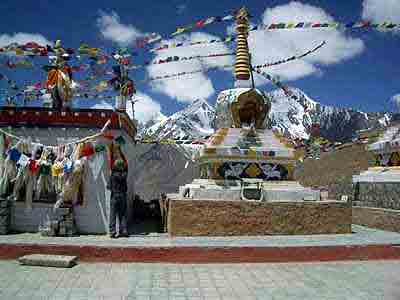
References
http://www.creationtips.com/christianity.html
http://www.faithstreet.com/onfaith/2008/07/15/christians-give-god-a-bad-name/61
http://en.wikipedia.org/wiki/List_of_converts_to_Christianity
http://en.wikipedia.org/wiki/Islam
http://www.modernghana.com/news/478976/1/achievements-impacts-and-contribution-of-islam-to-.html
http://www.religionfacts.com/islam/history/prophet.htm
http://en.wikipedia.org/wiki/List_of_American_Muslims
http://wiki.answers.com/Q/What_percentage_of_the_world_is_currently_at_war
http://www.whichcountry.co/top-ten-religions-in-the-world/
https://answers.yahoo.com/question/index?qid=20061203073051AApmXbX
http://en.wikipedia.org/wiki/Judaism
http://www.jewfaq.org/torah.htm
http://www.answers.com/Q/When_did_Abram_leave_Ur_of_the_Chaldees_in_Genesis_11v31-32
http://en.wikipedia.org/wiki/Kingdom_of_Israel_(Samaria)
© 2014 Yoleen Lucas



